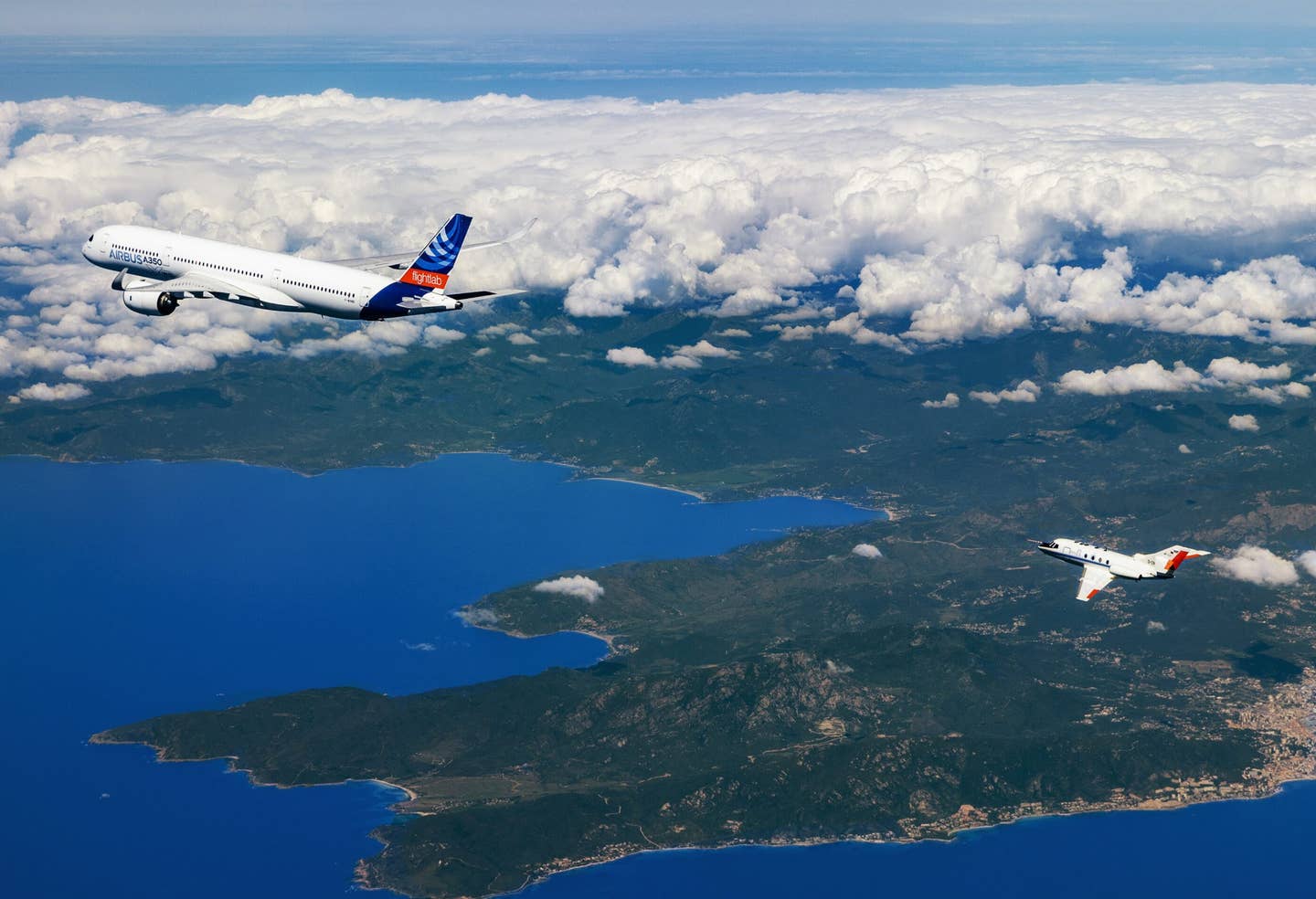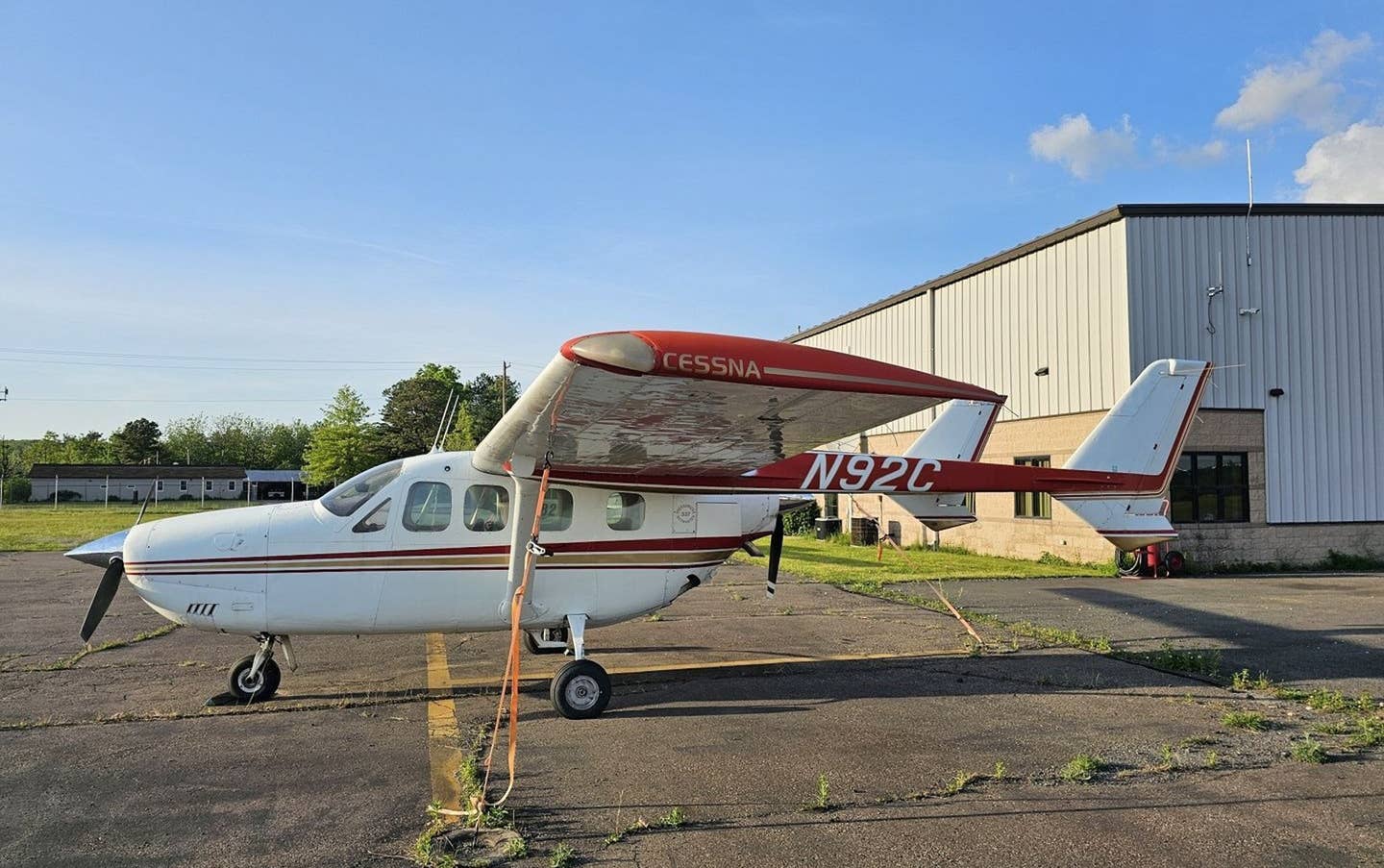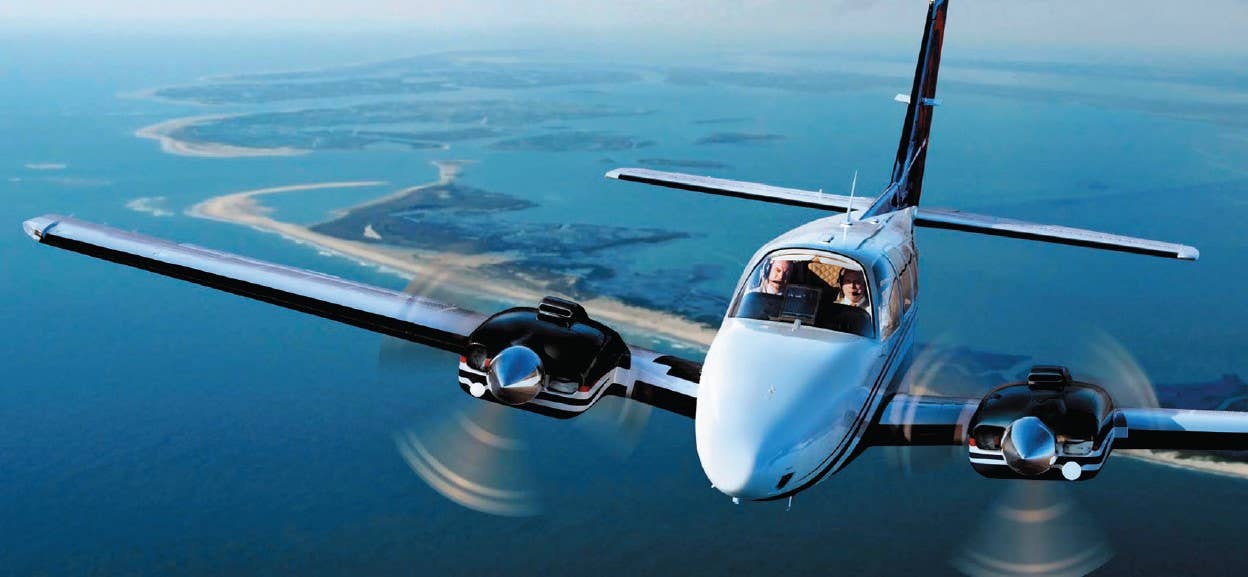First Twin-Engine, 100 percent SAF Test on Commercial Passenger Jet Shows Promise

Researchers test 100 percent SAF using an Airbus A350 and a Falcon chase aircraft. Credit: Airbus
For the first time, researchers are studying the effectiveness of burning 100 percent sustainable aviation fuel (SAF) in both engines of a commercial passenger jet. Researchers from Airbus, Rolls-Royce, the German research center DLR and SAF producer Neste, reported promising early results Monday.
In-flight emissions testing began earlier this year using an Airbus A350 powered by Rolls-Royce Trent XWB engines.
Initial results of the “world-first study” show “no engineering obstacle” to running on 100 percent SAF, according to an Airbus statement. Currently, aircraft are allowed to operate on a 50 percent mix of SAF and conventional jet fuel.
Researchers reported that SAF released fewer particulates than conventional kerosene under all tested engine operating conditions. This initial success points to SAF’s potential to reduce aviation’s “climate impact” and improve the air quality around airports.
“If we are to truly decarbonise long-haul air travel, then 100 percent SAF is a critical element and we are committed to supporting its certification for service,” said Simon Burr, Rolls-Royce director of product development and technology, civil aerospace, in the release.
Why This Matters
Although the aviation sector accounts for just 2.5 percent of global CO2 emissions, jet fuel use is projected to rise quickly during the next three decades.
Increasingly, commercial and cargo airlines have been committing to using SAF as part of an overall initiative to cut their carbon footprints.
Burning SAF emits significantly less greenhouse gas emissions than conventional fossil-based aviation fuel. It’s made by mixing conventional fuel with various renewable materials including cooking oil, plant oils, agricultural residues, and municipal waste.
SAF also boasts a lower density and higher energy content per kilogram, compared to conventional kerosene. Because of that, SAF offers fuel-efficiency advantages.
The joint research program plans to publish final results from the Airbus A350 experiments in academic journals around the end of 2022 and into 2023.
Findings from the study will support Airbus and Rolls-Royce programs aimed at preparing the aviation sector for the large-scale use of SAF.
Supporters say hurdles to scaling up SAF use include its relatively high cost and the lack of enough production facilities.
In September, Shell announced plans to open a large-scale SAF production plant, which would be one of the largest in Europe.

Subscribe to Our Newsletter
Get the latest FLYING stories delivered directly to your inbox






